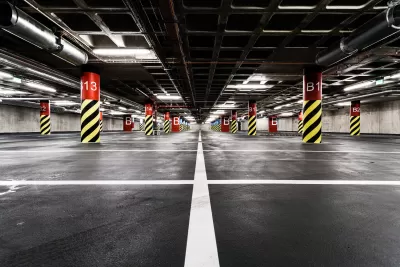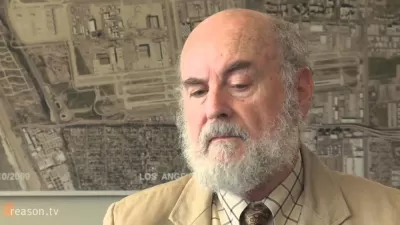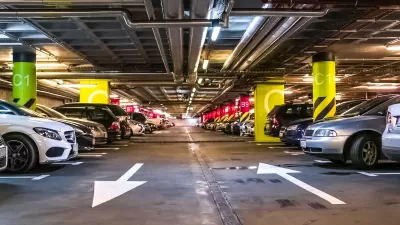Journalist Harry Grabar takes Prof. Don Shoup's economic theories about parking (and over-parking) and illustrates them with compelling—and terrifying—stories about the role parking plays in America's cities.

“Even Don Shoup knows that 800 pages of economic analysis of free, paid, and under-priced parking can put anyone into a coma, even if it started a revolution.”
“Such is not the case with Paved Paradise: How Parking Explains the World--the best, and breeziest, book on parking since Shoup Dogg first dropped the mic. By journalist Henry Grabar, who is best known for writing about cities on Slate, Paved Paradise is hip, current, and comprehensive. It covers not just Shoupian economics but also design, business, public administration, culture, and just about every other impact that parking has on America's cities, soul, and psyche in a relatively slim 300 pages.”
“Through a minor miracle of storytelling, Grabar takes a topic that is literally static and gives it intrigue through numerous anecdotes (plus delightful illustrations by Oakland-based artist and urbanist Alfred Twu). He recounts the sordid tale of the privatization (and pillaging) of Chicago's parking meters. He goes on a metaphorical ride-along with New York's most hard-nosed parking attendant. He reveals how low-level employees have scammed airports out of potentially millions of dollars in revenue. He sympathizes with developers who, through regulations and lenders' mandates, have to build and then gaze upon dozens or even hundreds of empty spaces. He eavesdrops on stakeholders demanding that proposed projects be downsized lest they have inadequate parking. He sympathizes with small businesses saddled with more asphalt than inventory.”
“If planners are to truly reform parking in the United States, they need to tell stories just like Grabar does, making the ills of over-parking and under-pricing accessible to everyone.”
FULL STORY: The Best Parking Book Since Donald Shoup

Planetizen Federal Action Tracker
A weekly monitor of how Trump’s orders and actions are impacting planners and planning in America.

Restaurant Patios Were a Pandemic Win — Why Were They so Hard to Keep?
Social distancing requirements and changes in travel patterns prompted cities to pilot new uses for street and sidewalk space. Then it got complicated.

Map: Where Senate Republicans Want to Sell Your Public Lands
For public land advocates, the Senate Republicans’ proposal to sell millions of acres of public land in the West is “the biggest fight of their careers.”

Maui's Vacation Rental Debate Turns Ugly
Verbal attacks, misinformation campaigns and fistfights plague a high-stakes debate to convert thousands of vacation rentals into long-term housing.

San Francisco Suspends Traffic Calming Amidst Record Deaths
Citing “a challenging fiscal landscape,” the city will cease the program on the heels of 42 traffic deaths, including 24 pedestrians.

California Homeless Arrests, Citations Spike After Ruling
An investigation reveals that anti-homeless actions increased up to 500% after Grants Pass v. Johnson — even in cities claiming no policy change.
Urban Design for Planners 1: Software Tools
This six-course series explores essential urban design concepts using open source software and equips planners with the tools they need to participate fully in the urban design process.
Planning for Universal Design
Learn the tools for implementing Universal Design in planning regulations.
Heyer Gruel & Associates PA
JM Goldson LLC
Custer County Colorado
City of Camden Redevelopment Agency
City of Astoria
Transportation Research & Education Center (TREC) at Portland State University
Camden Redevelopment Agency
City of Claremont
Municipality of Princeton (NJ)





























